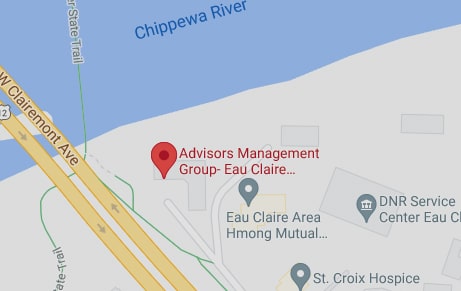Whether you are a college student, career person or retired, you may be looking for ways to increase your income. Side hustles or gig work are becoming an increasingly popular way to bring in extra money, but what should you consider before jumping on the bandwagon? By understanding how to evaluate income opportunities, you can choose what makes sense for you and what is better to avoid.
Consider your long-term goals. Are you hoping to work for yourself someday? Can your part-time gig work become your full-time income someday? A side hustle can be a great way to ease out of the rat race and into being your own boss. Not interested in going into business? Consider casual job opportunities to add extra income. Try something new or do a job that allows you to meet new people while doing things you enjoy.
For some, retirement will become a time of “reHIREment”. More people are choosing to open businesses or work in their own industry as a consultant. Doing this offers retirees a chance to work on their terms as much or as little as desired. This is a great opportunity for those who want the freedom of retirement but are not willing to hang up the career they have spent years building. Working for yourself in retirement can create retirement income that can be a great supplement to other sources of income such as Social Security, pensions or retirement account withdrawals.
Setting Yourself up for Success
If you decide to get moving on a side hustle, it is important for you to set yourself up for success. Do your research. Research similar businesses. Find out what has made them successful or what has caused them to fail. Plan to carve a niche and learn the art of networking yourself and your business. Be mindful of the realistic potential for income. While some businesses are wildly successful, small businesses have a high failure rate. It is important to understand what the business will take to get off the ground and when you can expect to turn a profit before investing your time and money.
Be mindful of tax implications. If you make money, you will owe tax. If you are your own employer, you may need to pay into Social Security and Medicare on your own behalf or make estimated tax payments. Consider startup costs and ongoing business expenses. What equipment, materials, or inventory are needed? What other costs have you not considered such as accounting software, or marketing. Be sure to consult with a tax professional or accountant to set your business up legitimately.
Avoiding Schemes
Seeking out extra income can make you valuable to “get rich quick” schemes. Be aware that pyramid schemes and multilevel marketing (MLM) business models are designed to create a lot of income for those at the top, while those at the bottom often make very little. You may be required to buy products ongoingly that are often more expensive than purchasing similar products elsewhere. These companies entice members to get others to sign up to offset the cost of the products they require you to purchase. They also promise passive income earned on products sold by the people you get to sign up. The Federal Trade Commission estimates that only 25% of MLM participants ever turn a profit.
Investment schemes are often advertised for those hoping to earn passive income. Some entice people to buy classes on real estate, crypto currency, stock market investing with the promise of you being able to become a successful and wealthy investor. Some of these business models may even entice people to invest their own money with promises of big returns.
As a rule of thumb, if a business or investment opportunity sounds too good to be true, then it probably is. Also, while an income opportunity may be legal and legitimate, it will not guarantee a profit. Some opportunities are simply opportunities for others to make money at your expense.
A Note on Passive Income
The term “passive income” is often used in the context of side hustles. True passive income is income that you do not have to work for. After the initial set up, it just keeps re-occurring and growing exponentially. You don’t need to start a business to create passive income. Investments such as stocks, bonds, CDs, and savings create passive income in the form of interest and dividends. You get paid for owing these assets.
Other assets can help you earn passive income as well. Owning rental real estate, franchises or vending machines can help you earn passive income. If you do not have the capital to purchase an asset for creating passive income, consider creating your asset. Creating online courses, stock photography, or monetize social media to create streams of passive income.
Ready to explore your options? We can help. Whether it is setting up your business, evaluating your tax situation or creating investment income, our team of business consultants and advisors is ready to help you create your plan. Visit our website or contact us today.
 |
Rebecca AgamaiteInvestment Advisor Representative Rebecca joined the firm in 2011 as an Investment Advisor Representative. In this role, she works with clients to manage their investment assets and help them obtain their financial objectives. Rebecca brings a great deal of experience to the team having worked for several years at Marshall & IIsley Bank and MetLife. She earned a Masters of Business Administration degree (with an emphasis on finance) from Concordia University. |
Advisors Management Group, Inc. is a registered investment adviser whose principal office is located in Wisconsin. Opinions expressed are those of AMG and are subject to change, not guaranteed, and should not be considered recommendations to buy or sell any security. Past performance is no guarantee of future returns, and investing involves multiple risks, including, but not limited to, the risk of permanent losses. Please do not send orders via e-mail as they are not binding and cannot be acted upon. Please be advised it remains the responsibility of our clients to inform AMG of any changes in their investment objectives and/or financial situation. This commentary is limited to the dissemination of general information pertaining to AMG’s investment advisory/management services. Any subsequent, direct communication by AMG with a prospective client shall be conducted by a representative that is either registered or qualifies for an exemption or exclusion from registration in the state where the prospective client resides. A copy of our current written disclosure statement discussing our advisory services and fees continues to remain available for your review upon request.



